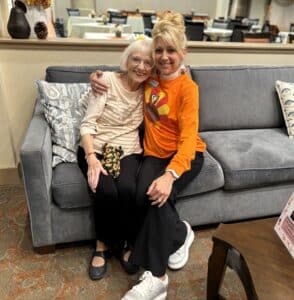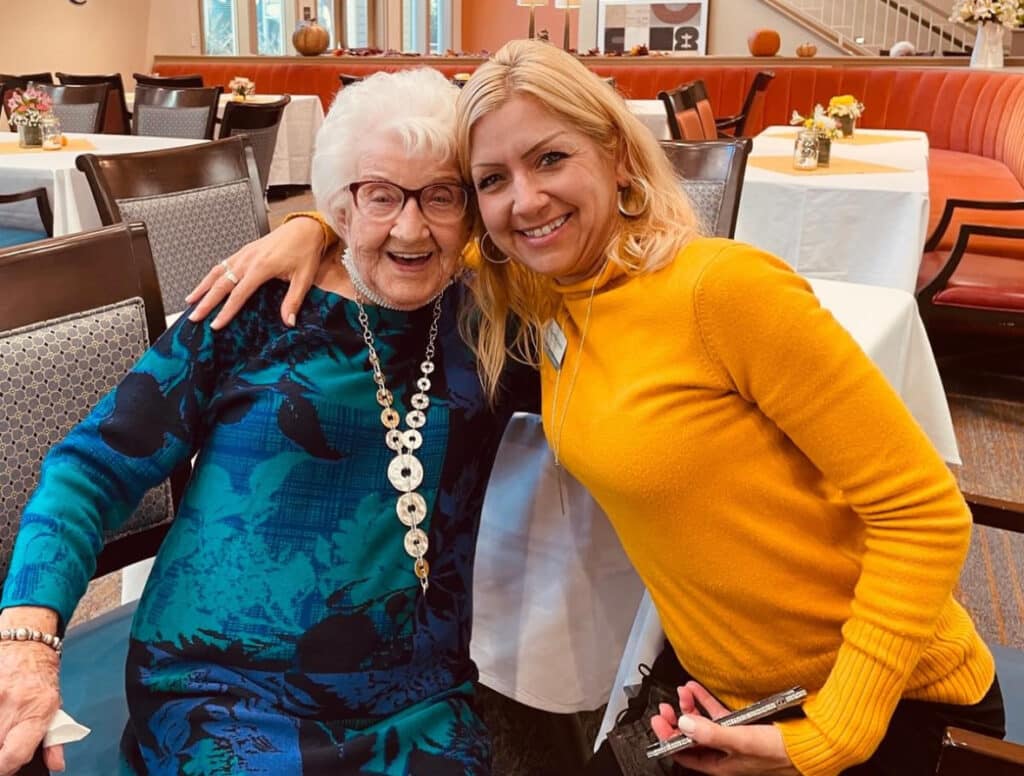Tips for beginning conversations about senior living
To state the obvious, moving is hard. But even harder? Thinking about moving.
Change to something unknown creates anxiety for most people. Consistency and routines bring comfort to our brains—and our bodies.
Yet the ability to change is required for growth. When we stop changing, we stop growing. When we stop growing, we stop living.
So how can we be more open to change?
Cynthia Bazin, Marketing Director at Prairie City Landing, a senior living community in sunny Folsom, California, sees people struggle with the idea of changing their living situations daily. In her years of helping older adults navigate their futures, she has learned several tips to help people make a change.
First, start the conversation sooner than you think you need to.
The sooner you begin discussing the future, the more choices you have. Change should help us learn and grow—it is not meant to be limiting. So start conversations early, when your options are most plentiful. And begin with curiosity. Ask questions like, “What do you want your future life to look like? What’s most important to you?” Ask questions that encourage imagining the possibilities.
Do not introduce the conversation about moving in a “pressure cooker” situation.
Thinking about moving should be an intentional choice for the best possible future. Ideally, it is not a reaction to a specific event. When it seems that moving is not a choice but a demand, there will be resistance. If your loved one has fallen or had a medical emergency, make short-term changes as necessary to ensure their care and recovery. If possible, wait until they are starting to recover to introduce the conversation about exploring a longer-term move in the future.
Continue earlier conversations by being curious and getting more specific.
Questions are important. As you guide the conversation, maintain curiosity while getting some specificity. Ask questions such as, “What does your day look like? What do you want your day to look like?” or “What is your most challenging task right now? If you had a magic wand, what one task would you make disappear?” Listen to the answers.

Cynthia shares a special moment with resident Marlene
Be honest about what you can do to support your loved one.
As a child or close relative or friend, we feel a lot of pressure to personally care for our loved ones. Acknowledge there are many ways to care for someone—and there are limited hours in the day! Recognize the time you have available to help and be upfront about it. Often, we send our children to school to be with peers and learn from teachers. This is not a lack of love but a way to empower their futures. The same is true for older adults. Helping them move to a place where people are specially trained to meet their needs and where they can be with peers is empowerment.
Talk about what you want your relationship to look like.
Caring looks like many different things. Sometimes, it is being a housekeeper and Uber driver. Other times, it is being the friend who sips tea and engages in a conversation. What do you and your loved one want your relationship to look like?
Getting older is hard work.
Acknowledge the challenges of aging—they are real! Recognize that the thought of moving can be overwhelming. And reassure your loved one that these are all normal feelings. They are not broken; they are going through the typical steps that we all go through—if we are lucky enough!
Focus on the positive.
Sometimes, seeing the glass half-full is a choice. Remind your loved ones that making choices and decisions now will empower them in the future. There are many benefits and amenities to moving to the right environment. And there are a lot of senior living options out there, so finding the right place is possible. Often, moving to the right community allows for more joy, better health, and less stress. Remind your loved ones of the dreams they have for their future.
Be a partner.
Resist the urge to be in charge. Try to be alongside your parent or loved one, helping to guide this journey with them, but not necessarily picking all the stops along the way. Living is a balancing act of autonomy and togetherness.

Cynthia laughs with resident Pat after a fitness class
Engage other partners.
Our intense emotional relationships with those we love can sometimes get in the way. Engaging someone else, like a doctor, trusted counselor, or someone who has recently been through a similar experience, can help keep the conversation moving forward in a rational (and less emotional) way.
At Prairie City Landing, our Counselors are here to help you navigate difficult conversations and make the best choices for you and your loved ones. Please reach out early to start a conversation.
To learn more about living in the vibrant community at Prairie City Landing, download our Signature Programs Guide.



